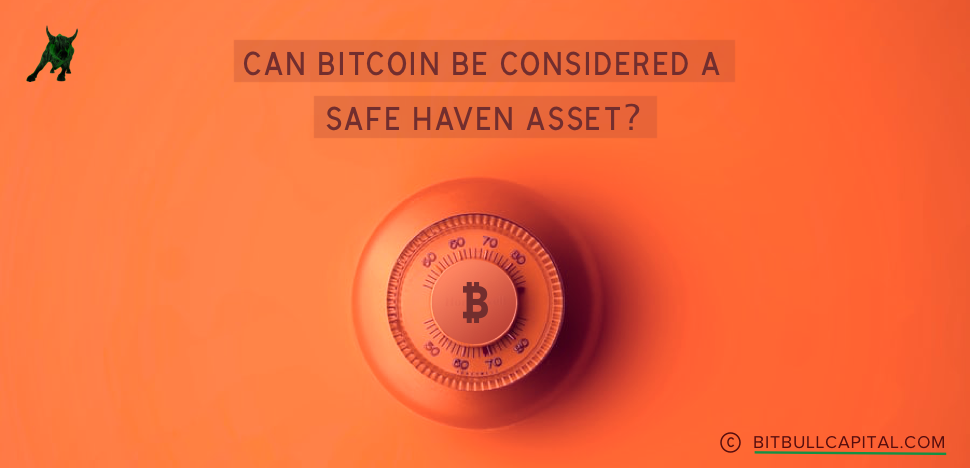Can Bitcoin Be Considered a Safe Haven Asset?
Bitcoin has been, over the course of its relatively short life, subject of much debate, particularly surrounding its use, utility, and reliability. However, this week we have seen analysts en masse question the leading cryptocurrency’s use as a safe haven asset and today we discuss this in detail.
What are safe-haven assets?
Traditionally, stocks have been favored by investors for their attractive returns, but equity markets are particularly vulnerable to global conflicts, economic turmoil, and recession. In times like these, equities perform poorly as their underlying fundamentals depend solely on businesses and industries, which are naturally impacted by trade wars, rising taxes, higher tariffs, and currency devaluations.
In order to protect their wealth in such scenarios, investors seek safe-haven assets, the most prominent of which is gold, while others include the Swiss Franc and government bonds. Of these assets share one major quality – they are stable stores of value during times when traditional markets are in decline.
What makes an asset a safe haven?
Safe-haven assets are characterized by their stability and insulation from traditional markets and currencies, including equities and the US dollar.
The point of parking money in a safe haven asset is to preserve wealth. For example, a portfolio heavy on stocks will lose majorly during an economic meltdown as equities face steep declines. However, a healthy allocation of gold and stable currencies like the Swiss Franc can preserve value (since these assets have proven to hold their value much better).
Generally, safe havens are of two types, one which preserves value and one which even increases it. In our previous example, the Swiss Franc preserves wealth (by not falling when the US Dollar or Chinese Yuan falls) and gold enhances it (by increasing in value when USD and equities drop).
The Swiss Franc is a safe haven asset by virtue of the Swiss government’s stability and strong financial system, while gold is a safe haven because of its fundamentals, including its scarcity.
Can Bitcoin be considered a safe haven asset?
Bitcoin’s case is a curious one when compared to other safe-haven assets. One of the key reasons why Bitcoin even merits consideration is its detachment from traditional markets and currencies by the very fact that it was designed by Satoshi Nakamoto as an alternative.
We highlighted this in one of our earlier pieces, with a cursory discussion surrounding the lack of correlation between Bitcoin and Nasdaq. More recently, when US stocks fell this week due to fears of a looming recession amidst a global economic meltdown, Bitcoin rose from under $11,000 to over $12,000 twice before minor corrections.
This surge, which is being attributed to Bitcoin’s status as a safe haven, is somewhat connected to the political and financial tension between the United States and China – two of the biggest economies. With the Yuan falling against the U.S. Dollar, it would make sense for Chinese miners (who comprise ⅔ of all Bitcoin mining in the world) to hold onto their Bitcoins and brace for adverse economic conditions. This reduction in supply is expected to result in a price increase.
However, Bitcoin is notoriously volatile and is among the least stable asset classes of all, making it a weak store of value, if one at all. That being said, some of the fundamentals Bitcoin shares with gold, including scarcity due to limited supply and rarity, make it an interesting hybrid, one which is largely free from government control, is resistant to confiscation and is among the easiest to transfer globally (qualities gold lacks).
In light of this, we believe Bitcoin should be considered an alternative investment as opposed to a true safe-haven asset, given that it is hardly reliable as a store of value. However, its unique characteristics make it a good investment choice in times when trust in the existing financial system and economy is weakened by falling markets, trade wars, and general economic turmoil.
The next question would be how much to invest in Bitcoin or crypto, and our article on crypto portfolio allocation answers this in detail.

